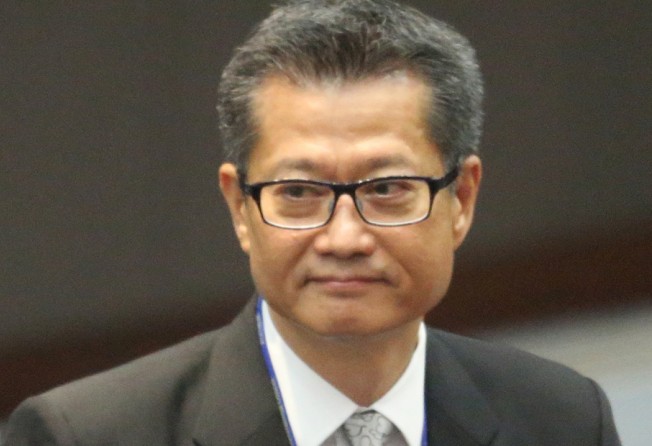Just following the rules may not mean trouble-free career
Government officials must also be politically alert and live up to public's expectations

"To be, or not to be, that is the question". This famous opening line of the soliloquy by Hamlet may be adapted with some variation to Paul Chan Mo-po, the trouble-plagued development secretary. He faced an equally tough choice the past week: "To stay, or not to stay, that is the question".
Chan and his family had a hard time as the "conflict of interest" saga snowballed after it was revealed that a company run by his wife's family - of which he once was a director - owned a piece of farmland in the New Territories. The land fell within a massive government new town development plan that Chan oversees.
As voices urging Chan to resign, or at least to step aside from the new town project, grew stronger the following questions re-emerged.
What does the public expect to know about the "interests" of our senior officials? Their assets of course, but to what extent? Should that include those of the spouse, the children or even the spouse's family?
The paradox this time was that while the public saw a likely conflict of interest between Chan and farmland owned by a family company, Chan, in theory, did not breach any rules as he was not required to declare his wife's or his wife's family's interests. Also, he had resigned from the company before taking up the government job.
Chief Executive Leung Chun-ying also backed Chan by saying that Chan had met all that has been required by ministers to declare their interests. But Leung was open to suggestions that the current declaration mechanism could be reviewed, adding that there was always room for improvement.
As a politically appointed minister, Chan automatically becomes a member of the chief executive's top advisory body, the Executive Council, and must abide by two sets of rules: The Code for Officials under the Political Appointment System, and the rules governing The Register of Interests of Members of the Executive Council. Neither requires a member's spouse to declare their assets.
Officials are first vetted and then have to declare their interests in writing - all based on an honour system. Let's see if the experience of a former senior official, who declined to be named, could shed some light on how the honour system works. After accepting the government's offer, he was visited at home by a senior police officer assigned to vet him. "I presented the officer with all my bank accounts, property certificates, commercial activity records, and whatever I believed I needed to report," the official said. The officer was very polite. "It was I who took the initiative to show him whatever I thought was necessary for the vetting, both mine and my family's," the former official said.
But the police officer asked one particular question, which was rather embarrassing: "Have you ever had an affair?" How does one answer that?
"Honestly," the official said.
Of course, this former official is a dedicated family man without any skeletons in his closet.
"Financial problems or an affair would not necessarily block one's career in the government if everything were honestly presented," he said. "But if one forgets or tries not to tell the whole truth, and later, when certain past records are exposed by the media, the consequences would be disastrous," he said.
After the vetting comes the declaration, when a political appointee puts their "interests" in writing.
In Paul Chan's case, he passed the vetting and declared his interests - no less and no more than required.
This could be the main reason Chan is refusing to resign, believing that he did nothing wrong. But regaining the public's trust is another matter, even after the efforts he, his wife and his wife's family have made, including deciding to sell the farmland through public tender.
Given that our declaration system is honour-based, broadening the scope of the interests that must be declared may technically help further avoid conflicts of interest. But the crux of the matter is that the honour system also gives people a much higher expectation of officials' integrity. Any official without a strong awareness of this could miss mentioning certain "interests" as they might not think that they fall within the scope of the system.
Thus, strictly following the rules does not necessarily guarantee a crisis-free political career. Political alertness and self-awareness are even more important.